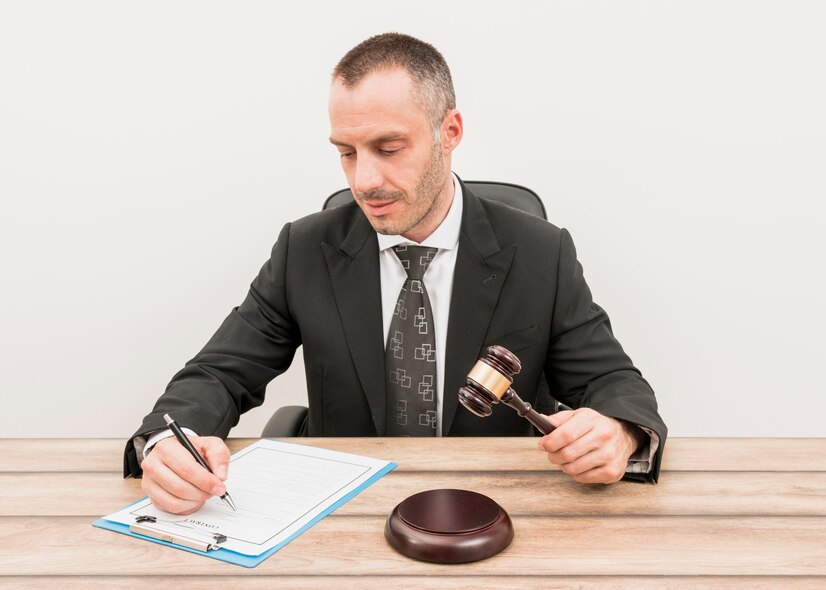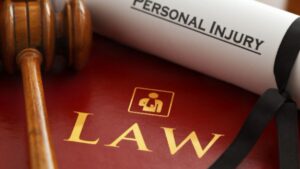LAW
Everything You Need To Know About California Lemon Law Claims

California’s lemon law was passed in the year 1970. And ever since, there have been growing cases of lemon law claims. If you wonder what the California lemon law is all about, how it works, and more, you’ve got all your questions answered. To begin with, the lemon law claim is when a consumer is sold a defective product, typically or more commonly a vehicle. Upon being sold a defective product covered by warranty, the warranter is supposed to replace the defective product or provide a full refund per this claim.
While a lemon law claim might sound simple and easy, the process of filing this claim and receiving a refund or replacement may not be as straightforward. Therefore, working with a law firm gives you an edge over the warranter and makes your case stronger, as all the legal aspects are covered and addressed. With that said, here’s more to answer all your common California lemon law FAQs.
Why Do California Lemon Law Claims Require Legal Help?
When filing a lemon law claim, there can be several hurdles in the way before you see your vehicle replaced or receive the refund for your defective vehicle. Auto manufacturers have the best of legal teams and they are always prepared to counter lemon law claims. They’re well aware of the legal nuances involved in lemon law claims and your chances of getting the kind of settlement you expect can be minimized. This is essentially why you must work with an experienced lemon law attorney who can help you understand your claim and ensure you receive the right settlement. Further, having legal help also speeds up the process of receiving the compensation.
Do You Qualify For A Lemon Law Claim in California?
Every state has a version of the lemon law, which may differ from each other in certain ways. Therefore, you may want to first check if your claim will qualify as a lemon law claim. The most basic requirement for your claim to qualify as a lemon law claim in California is for your vehicle to still be under warranty when you experience issues indicating your vehicle is defective. Besides that, make sure you meet the following criteria (but not limited to these factors) to ensure your claim is considered a lemon law claim.
- Your vehicle has a defect that impairs how the vehicle functions and the specific defect is covered by the warranty.
- This defect may put the safety of those in the vehicle at risk.
- The vehicle has been out of service for repairs for over 30 days.
- The defect did not result from the unauthorized or unreasonable use of the vehicle by the consumer.
As soon as you encounter any of the issues, you should make it a point to get in touch with the authorized repair facility for your automobile. As you do this, the local warrantor should start with the repairing process. In addition to this, have a consultation with a lemon law attorney to determine if your case would quality for a lemon law claim in California.
Do Vehicles That Have Crossed 18k Miles Qualify For Lemon Law Claims?
Yes, vehicles that have covered over 18,000 miles can qualify for lemon law claims in California. It is one of the top misconceptions that, if the repairs were made after the vehicle crossed 18k miles, you cannot seek settlement under the lemon law. With other factors in place, the 18k mile does little to impede your right to claim a replacement or settlement for the lemon.
What If Your Car Is/Was Used?
One of the common questions for those making a lemon law claim is whether the Californian lemon law would apply to used cars. The short answer is yes. The long answer is — if you made repair visits for defects or issues that were covered by the warranty, your case and the used vehicle qualify for a lemon law claim. However, you can get in touch with a legal expert to understand this in a deeper sense.
Do You Have to Go to the Court For Your Lemon Law Claim?
Your case can be resolved outside of court. The best way to avoid going through formal court proceedings for your lemon law claim is to work with an experienced lemon law attorney. When your case is strong, your auto manufacturer would find it less cumbersome to settle the case outsider of court instead of filing a lawsuit.
Given the complexities involved in lemon law claims, the best practice to ensure you receive settlement for your defective car is to contact a reputed law firm with professional lemon law attorneys. This will reduce the turnaround time for your case, help you make a strong case, and ensure that you’re not burdened with having to do all the research, which can mostly be tricky and time-consuming.
LAW
Why You Should Never Take a Criminal Charge Lightly

The weight of a criminal charge can tremendously impact your life. How you navigate this process can dictate your future and affect everything from employment opportunities to personal relationships.
Many people underestimate the serious consequences of criminal allegations, believing they can handle the situation without professional help. This perception can lead to disastrous outcomes. Understand the implications of a criminal charge and take it seriously, as there’s more at stake than merely avoiding a sentence.

The Potential Consequences of a Criminal Charge
Facing a criminal charge can result in numerous negative outcomes that extend beyond legal penalties. Depending on the severity of the offense, you could face fines, probation, or even imprisonment. The ramifications can go deeper and impact the ability to secure employment, maintain housing, and nurture relationships.
Employers frequently conduct background checks, and a criminal record can limit job prospects in fields requiring trust and responsibility. Financial struggles may arise from legal fees and potential loss of income due to incarceration or a damaged reputation. With state laws varying, know the specific consequences in your jurisdiction. Understanding these serious implications can underscore why engaging with a qualified professional from the outset will protect your interests.
The Importance of Early Legal Representation
When confronted with a criminal charge, legal counsel can impact the outcome. Early intervention by a skilled attorney can mean the difference between a reduced sentence and a lengthy prison term. Look for lawyers who know how to navigate the complexities of the legal system: they gather evidence, file necessary motions, and represent you in court. Their experience in dealing with similar cases gives them insights that can prove invaluable in your defense.
Legal representation can reduce the emotional stress that comes with facing serious charges. An attorney can manage communications with law enforcement and the courts, allowing you to focus on your personal life without the burden of constant worry.
The Types of Criminal Charges
Criminal charges fall into two categories: misdemeanors and felonies. Misdemeanors are less severe offenses that may involve lower fines and shorter jail sentences of up to one year. Felonies carry more serious implications, resulting in longer prison sentences and significant fines. Robbery, assault, and drug trafficking fall under this category.
There are civil offenses that, while not criminal, may nonetheless have significant legal repercussions. Identifying the right category of your charge can help you determine the best course of action and prepare you for possible outcomes.
Your Rights During Legal Proceedings
Everyone is entitled to due process, which means you cannot be deprived of your rights without proper legal proceedings. You have the right to remain silent; anything you say can be used against you in court. You are entitled to legal representation at all stages of the process. Knowing these rights allows you to navigate the legal system more effectively and develop a defense strategy that protects your interests.
You retain the right to contest the charges against you and to request a fair trial. Engaging with legal professionals who understand the intricacies of the legal system can guarantee that these rights are upheld throughout the proceedings. Being informed about your rights can empower you to make sound decisions and advocate for yourself.
Common Misconceptions About Criminal Charges
Many people harbor misconceptions regarding criminal charges, underestimating their severity. The most common myth is the belief that first-time offenders will always receive leniency. The justice system may sometimes consider prior behavior, but each case is unique and can generate unexpected outcomes.
Another misconception is that self-representation can save money and deliver the same favorable results as hiring a legal professional. Without a deep understanding of the law, an individual may inadvertently jeopardize their case. Misunderstanding these elements can lead to poor decisions and further complicate your case. Rather than risking your future based on inaccurate beliefs, engaging with qualified legal experts to navigate these complexities can position you for a better outcome.
Resources for Finding Legal Support
For those facing criminal charges, finding the right legal support is not always easy. There are numerous resources available to help you locate qualified attorneys who specialize in criminal law. Online legal directories provide user-friendly platforms where you can search for attorneys based on location and area of expertise. Local or state bar associations can recommend reputable attorneys and provide guidance on legal representation.
Personal recommendations from trusted friends or family can lead you to professionals who have successfully navigated similar cases. These resources increase your chances of finding attorneys who can advocate for your rights. Don’t hesitate to invest time in finding the right expertise; your future may depend on it.

The labyrinth of the criminal justice system can be intimidating, and the consequences of charges should never be taken lightly. The potential repercussions impact more than your immediate legal status; they can haunt your personal and professional life for years.
Know the nature of the charges you face, the importance of early legal representation, and your inherent rights to approach your situation confidently. By enlightening yourself on these topics and obtaining appropriate legal support, you bolster your chances of a favorable resolution to your case.
LAW
Why You Shouldn’t Settle for Less in Your Personal Injury Claim

When you’ve suffered an injury due to someone else’s negligence, the physical pain is often just the beginning of your struggle. Medical expenses, lost wages, emotional distress, and the disruption of your daily life can quickly become overwhelming. In such situations, it’s natural to want a quick resolution, and many victims feel pressured to accept the first settlement offer they receive. Settling too quickly or for too little can leave you financially and emotionally shortchanged in the long run. Understanding your rights and the full value of your claim is vital. This blog post explores six critical reasons why you shouldn’t settle for less in your personal injury claim, highlighting the importance of patience, thorough documentation, and professional legal support.

You Deserve Full Compensation for All Damages
Many initial settlement offers fail to account for the full scope of damages you’ve experienced. Insurance companies often focus on the most visible costs, like immediate medical bills, and ignore future treatments, emotional distress, and lost earning potential. If you accept a low settlement, you could be left to shoulder ongoing costs. Personal injury claims can cover physical injuries and psychological trauma, rehabilitation, and the impact on your quality of life. By refusing to settle for less, you ensure that all aspects of your suffering are considered and fairly compensated, helping you recover, not just survive.
Legal Representation Levels the Playing Field
Attempting to negotiate a personal injury claim on your own can be intimidating, especially against experienced insurance professionals. Without a knowledgeable advocate, such as personal injury attorneys in Charleston, you may be unaware of your rights, underestimate your claim’s value, or miss critical deadlines. A skilled personal injury attorney brings negotiation experience, access to expert witnesses, and a thorough understanding of legal procedures. They can help build a compelling case that reflects the true extent of your losses. By refusing to settle for less and securing professional legal help, you protect yourself from manipulation and significantly increase your chances of a fair and just outcome.
Insurance Companies Prioritize Their Profits
Insurance companies are businesses with a primary goal of minimizing payouts to protect their bottom line. Their adjusters are trained to negotiate quickly and efficiently, often presenting lowball offers before victims fully understand the extent of their injuries. If you accept an offer too soon, you waive your right to pursue additional compensation even if new complications arise. Holding out for a fair settlement signals that you’re aware of your rights and unwilling to be taken advantage of. This pressure can lead insurance companies to make more reasonable offers, especially when they know you’re prepared to fight for what you deserve.
Non-Economic Damages Matter, Too
Pain and suffering, emotional distress, loss of companionship, and decreased enjoyment of life are all legitimate components of a personal injury claim. These non-economic damages are harder to quantify but just as real and impactful. Settlements that ignore or undervalue these aspects fail to recognize the full scope of your experience. Insurance companies often try to minimize these damages because they’re subjective and harder to prove. Your story, medical records, and witness testimony can substantiate them. Don’t be afraid to advocate for recognition of these intangible losses. Your emotional and psychological well-being matters just as much as your physical recovery.
Future Medical Costs Can Add Up Quickly
Some injuries take time to reveal their full impact, and the long-term costs can be significant. Ongoing physical therapy, future surgeries, assistive devices, or mental health support might not be immediately evident after an accident. Accepting a settlement before these needs are known can result in severe financial strain later on. By working with a legal or medical professional, you can project future expenses and incorporate them into your claim. Settling for less risks, underestimating your current condition, and it jeopardizes your ability to handle future health-related expenses.
Lost Income and Career Disruptions Must Be Accounted For
Beyond medical costs, personal injuries can greatly affect your ability to earn a living. Whether you’re forced to take a temporary leave, work fewer hours, or abandon your career altogether, the financial impact can be devastating. Many victims fail to calculate the full value of their lost wages, retirement contributions, or career trajectory. A proper claim considers both present and future income disruptions. If you settle for less, you risk compromising your long-term financial security. Insisting on fair compensation ensures that you’re not penalized twice, once by the injury itself and again by inadequate financial recovery.

In the aftermath of an injury, it’s tempting to settle quickly and move on. However, rushing into an agreement can lead to long-term financial and emotional hardships. Every personal injury claim is unique, and its value should reflect the full impact on your life. Whether it’s future medical care, lost income, or emotional suffering, each element deserves consideration and compensation. By resisting low offers and enlisting expert help, you stand a much better chance of receiving the support you need to rebuild your life. Don’t sell yourself short. Your recovery and your future are worth the fight.
LAW
Why the Legal Sector Needs Couriers It Can Actually Rely On

Law doesn’t leave much room for error. Deadlines aren’t gentle. Miss one, and you’re not just behind schedule.. you could be staring down a postponed hearing, a deal gone cold, or a deeply unimpressed client. Which is why legal professionals don’t just need delivery services. They need something sharper. Quieter. More dependable. They need a reliable courier service that gets the weight of what’s riding inside that envelope.
Because in this line of work, you’re not sending shoes or stationery. You’re sending someone’s future. Or at least the paperwork that might shape it.
Urgency Isn’t a Feature; It’s the Job
Time pressure is baked into the legal process. There’s always a filing window about to close, a contract that needs signing by sundown, or a bundle of evidence heading to chambers for tomorrow’s case. And there’s very little tolerance for “Sorry, we tried.”
A courier for legal documents needs to move like they’ve read the room. They need to collect fast – sometimes within the hour.. and deliver without taking the scenic route. And yes, same-day delivery’s a must. But it’s not just about speed. It’s about showing up, every time, with zero fuss and no excuses.
Confidential Means Confidential
Here’s the thing; legal paperwork isn’t just time-sensitive. It’s sensitive, full stop. Names, numbers, deals, disputes. All of it private. All of it potentially explosive in the wrong hands.
That’s why using a standard delivery service, the kind that tosses your envelope into a van with ten birthday presents and a broken printer, just doesn’t cut it. A good courier for legal documents understands discretion. They get the need for direct delivery. No pit stops. No swapping hands. Ideally, it’s one person from pick-up to drop-off, and you know exactly who it is the whole way through.
It’s About More Than Delivery
Here’s where the nuance comes in. Legal work isn’t just high-stakes.. it’s unpredictable. Court schedules shift. Clients cancel. Deadlines creep forward when no one’s looking. So the people moving your documents? They can’t just be quick. They’ve got to be adaptable. A bit unflappable. Ideally, they’ve been around legal folk before and know how to read the mood.
A reliable courier service doesn’t wait to be asked twice. They update you before you wonder. They handle the awkward logistics, like finding the one open entrance to a courthouse at 4pm – without kicking up a fuss. You barely notice they’re there. Which, honestly, is kind of the point.
Reputation Travels Fast
The legal sector runs on precision, yes. But it also runs on perception. Clients trust you with the big stuff, their contracts, their claims, their peace of mind. So if your documents don’t turn up on time, or worse, go missing altogether, that trust frays a little. And it’s hard to stitch back.
Which is why outsourcing deliveries to someone who actually gets what’s at stake isn’t an indulgence, it’s smart. It means one less thing to worry about. One more part of your day that just… works.
In the End, It’s About Trust
Not every courier is right for the legal world. It takes a certain kind of service.. FAST, yes, but also discreet, alert, and stubbornly reliable, to move documents in this space. So if you’re in law and still juggling deliveries yourself, or relying on patchy services that keep you holding your breath… maybe it’s time.
Because when the clock’s ticking and the stakes are high, trust isn’t a luxury. It’s the only thing that matters.

 Cartoon1 year ago
Cartoon1 year agoUnlocking the Potential of Nekopoi.care: A Comprehensive Guide

 Game1 year ago
Game1 year agoExploring Aopickleballthietke.com: Your Ultimate Pickleball Destination

 BUSINESS1 year ago
BUSINESS1 year agoWhat Companies Are In The Consumer Services Field

 BUSINESS1 year ago
BUSINESS1 year agoUnraveling the Mystery of 405 Howard Street San Francisco charge on Credit Card

 HOME IMPROVEMENT1 year ago
HOME IMPROVEMENT1 year agoVtrahe vs. Other Platforms: Which One Reigns Supreme?

 TECHNOLOGY1 year ago
TECHNOLOGY1 year agoThe Guide to Using Anon Vault for Secure Data Storage

 ENTERTAINMENT11 months ago
ENTERTAINMENT11 months agoUnderstanding Bunkr Album: A Comprehensive Guide

 ENTERTAINMENT1 year ago
ENTERTAINMENT1 year agoThe Epic Return: Revenge of the Iron-Blooded Sword Hound
















